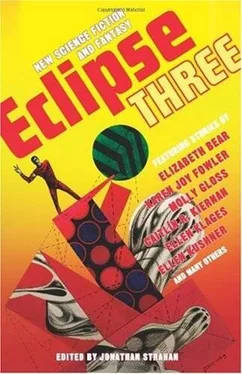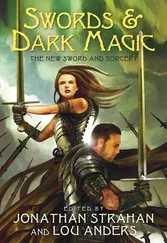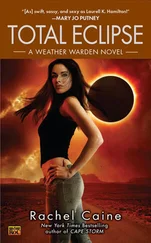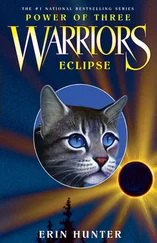You draw a breath full of sawdust and incense and think, Too perfect. You might even say it, but Marty wouldn't hear you, and sometimes talking to yourself is really talking to be overheard. So you wait until he turns to check your reaction, moving into the warm shop with the snow dripping off your cuffs, and you say, "You made all these?"
"Every one." He reaches out and taps the hull of a double bass, the face striped purpleheart and rosewood and something gold. It thumps like a melon, sweet and ripe, so you wonder if he can feel the resonance through lingering fingertips.
"Do you sell them?" You want to touch the jazz guitar hanging over the lathe. Its faceplate is honey-colored, riddled with holes from worms that must have worked in the tree after it was fallen. The neck is mahogany, and it too has small scars, the imperfections of salvaged wood.
"I give them away," he says, and lifts down the guitar you were eyeing. It's finished and strung; he sets an electric tuner on the bench and bends over the strings. You probably couldn't tune as fast by ear as he does in his deafness.
When he's done, he scoops up the beast and holds it out to you like a toddler, archtop gleaming under the worklights. It's strung left-handed, and you wonder how he knew.
He says, "Care to try her?"
Your cold-stung fingers itch for it. "Give them away?" you ask. "How can you afford that?"
He gestures around and grins. "It doesn't take a lot of money to live like this, and I made some when I was young. When I still played myself, a little. Go on, take the guitar."
He has a point there. So you lift the guitar off his palms and stroke it for a second, finding where your hands should fall. You glance up, about to ask him what he wants to hear, and find him staring at your fingers. Oh, of course.
So you pick out a Simon and Garfunkel tune, because it's easy and fun and suits the instrument. And then you play a little Pete Seeger something, until your cracked fingertips start to more-than-sting. You don't bother singing: Marty's not listening, and you want to hear the guitar. You'd give it back, but it feels good in your arms, close and friendly, so you let it sit there and puppy-snuggle for a minute while you chat. You play a couple of bars of "Peggy Sue" and a couple of bars of "I Wanna Be Sedated," and it all sounds good. You expect a little buzz at the bottom of the neck, but it's clean all the way down.
"Who do you give them away to?"
"Deserving folks," he says. "Folks with music people listen to. Folks whose music makes a better world. That one's yours."
Your right hand locks on the neck. "I can't take this."
"I made it for you," he says. "The siren called you, Missy. There's no two ways about it. That there's your guitar."
You'd have expected to be too ill and exhausted to continue your vest-pocket tour, but you wake up rested and strong on Thursday, and in fine voice as if in spite of having been half-drowned in ice water and left on the stones. You hum to yourself in the mirror while you fix your hair, and you pick out a white button shirt and patchwork vest with swingy glass bead fringe across the chest to pull on over threadbare jeans. Spiked up hair and too much makeup gives you cheekbones that will read from stage. You're getting too old for the scapegrace gamine schtick.
At the last minute, as you're packing up the Toyota, you decide to bring the new guitar.
Boston and Albany are great, better than good, CDs flying out of the booth, and in Albany you pick up a gig in Portsmouth for May and a business card from a booking agent who sounds six kinds of excited and impressed.
"You're a lot better live," she says, tossing bottle-red hair behind her shoulder. "We need to get you into bigger venues, get some quality production on those CDs."
You think you like her.
Two weeks later, when you make it back to play for the Eddies again, you've figured out something is up. The crowd treats you differently since the mermaid. It's not about the guitar, nice as the guitar is, because you experiment with using other instruments and it doesn't seem to change anything.
You have to stop yourself from scanning the crowd for the mermaid. She won't be here, you tell yourself, wondering why it's so hard to believe.
It's no surprise when Little Eddie sidles up after the second set and asks you for a return booking in another four weeks, at the same fee. You tell him you have to check your calendar and your booking agent will call him. You make a note to negotiate him up, and sharply.
But when he walks away, you catch Big Eddie looking over the bar at you and you can see the shine in her eyes. That rattles you. Big Eddie doesn't get like that. She never lets anything get under her skin.
You walk over on the excuse of a beer-the second set ends and the café closes before last call, so it's still legal to serve-and drape yourself over a stool.
Big Eddie slides it in front of you and says, "What did you do to your voice?"
"Does it sound bad?" You clear your throat, sip beer, and try again. "I kind of fell in some water and wound up with hypothermia on a hike, and it's sounded funny since."
You didn't miss the way your voice has changed, and not just the timbre: it's your phrasing and your range as well. It took a little while and some messing around with a digital recorder to understand what you were hearing. The tentativeness, the derivative garage-band sound the mermaid commented on, have been washed from your music, leaving something etched and rough-edged and labyrinthine as sea caves.
You love it. You haven't been able to stop singing-to the cat, to yourself, in the shower, walking down the street-since she kissed you. Your new voice fills you up, clothes you in bright glory. You know how everyone else who hears it feels, because you feel it too.
Eddie says, "No, no. It sounds great. But it doesn't sound like you."
You have to bang on the door of Marty's shop to get his attention. When the door creaks open on sawdust-clogged hinges, he blinks at the brightness of sun off snow and covers it by pushing up his safety glasses. "Problem with the guitar, Missy?"
"Actually, just the opposite," you say, shaping the words so he can read them on your lips and tongue. "The guitar is wonderful. It's something else I need to give back, and I was hoping you'd come with me. Because I don't know what I'll do if I hear her singing. I'd really-" You look down in embarrassment, force yourself to look up again. If he can't see your face, he can't understand what you're saying. "-I'd really owe you one."
You already owe him one. More than one. Closer to a dozen. Your impression that he's a good guy is reinforced by the fact that he hangs the goggles on a nail inside the shop threshold, pulls his coat and gloves on without a word, and only pauses long enough to padlock the door.
You go down into the earth like pilgrims, making obeisance to the gods of deep places, sometimes scraping on your bellies over rough stones. Marty takes you deeper and by different passages than you went before, and all you can do is follow. You can't talk to him in the dark, not unless you make him turn and shine his light into your face, and so you listen to what he has to say instead.
"I had a daughter your age," he says, and you notice the verb tense and don't ask, just let your fingers brush the back of his wrist. In the cave, echoing from stone, shimmering from the moving surface of the underground river, his voice takes on the resonances and harmonics that have come to invest your own.
But then he adds, "She was a guitar player too." And, after another moment, "Kids are stupid. And maybe God protects fools, drunks and musicians, but all three at once is a bit much to ask of anybody."
You touch his shoulder in the dark, and realize it wasn't the deafness that made him give up playing. He leans into it for a second before walking forward, placing feet carefully on the rippled stones, ducking sideways to bend under a low roof. Water's worn scallops on the floor of the cave; they look like ripples in sand where a river's flowed over it. Wave patterns, sine patterns, like sound.
Читать дальше











